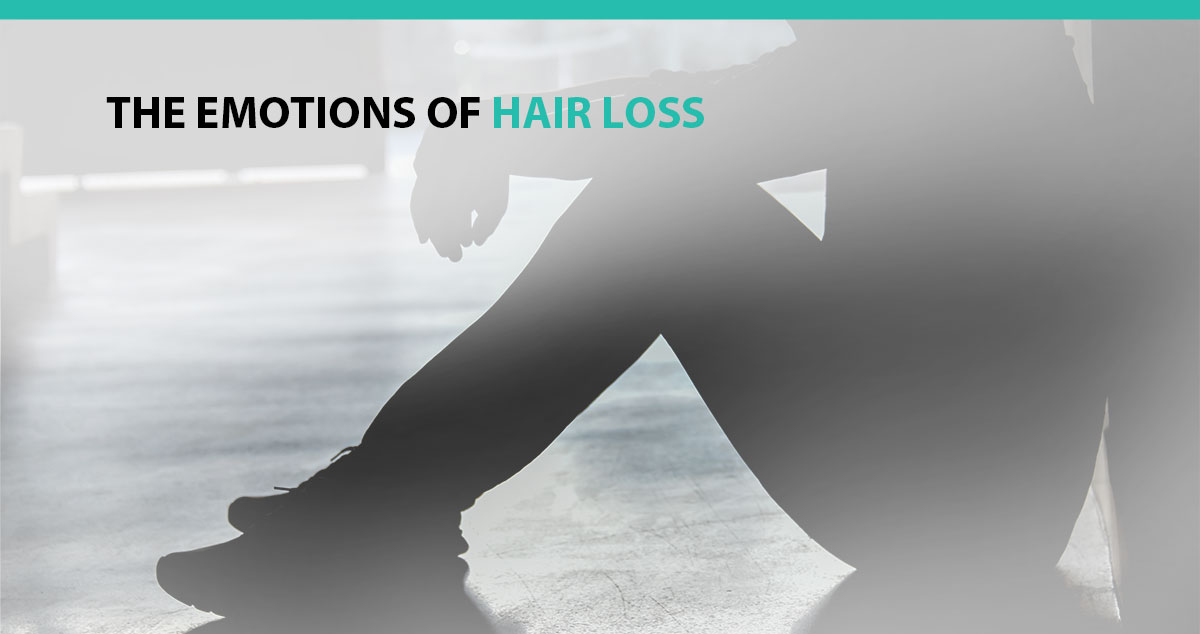
We are a complex species. But sometimes, we can be predictable. If we stub a toe, we shout in pain. If someone makes us late, we become grumpy. If someone brings an unexpected gift, we light up inside. And whether or not our emotions make sense, they at least surface for a moment, and we experience them nevertheless.
They don’t have to make sense, and we don’t always get to screen them to see if they’re right or wrong; they just happen. When it comes to the first signs of hair loss, or even when it enters the stage where you know it’s inevitable, the emotions can still hit hard. The emotions may even be premature or unnecessary altogether. So which ones are known to hit, and what can be done about them?
Anxiety
Anxiety is often described as overwhelming dread or fear of loss.
Excessive worry about your hair loss may increase tension, affect your concentration, and cause phobias. If you’re afraid of participating in public or social events, it may harm your career prospects as well. Other features of anxiety include restlessness, irritability, and a feeling of mental blankness. Continued isolation only worsens the condition.
Anxiety also has physical manifestations. Examples are headaches, sweating, dizziness, heart palpitations, stomach upsets, muscle tension, and insomnia. Without a proper diagnosis, you might mistake them for symptoms of another physical illness. So while you may be nervous about the prospect of losing your hair, try to remain calm and seek out ways to cope or action steps to take.
Even more importantly, stress is the leading factor in death worldwide, and we must do all we can to manage and prevent it, especially when it comes to worrying about things outside our control. Studies have found one of the keys to living longer is worrying less and not obsessing over things that aren’t the highest on the priority list (health and family are listed at the top for most).
Jealousy
Jealousy is a tricky one. It can be an emotion that we experience when we want something others have, like a better car, or genes that play fair in our minds. We can go through a phase asking what we did to deserve the short end of the stick, or what they did to deserve long locks of hair. This is found to happen in other areas like height, body shape, and our financial place in the world.
It is yet another emotion that can be resolved or changed for the better by focusing on our own responsibilities to go get the things we want. If it’s a better car like the neighbor’s, it will require some action steps that may involve earning more net income. If it’s a hairline that isn’t receding, then it may be a hair transplant performed by professionals.
But all in all, we arrive at a better place in life when we leave feelings of jealousy behind and mature as individuals, changing the things we can change and taking pride in owning the things we’ve worked hard for. That mentality can put jealousy to bed for good.
Shock
Shock is the disbelief that a thing can happen at all, or that it could ever happen to us. We often experience a certain amount of shock when we hear about perfect couples going through a divorce. It wasn’t supposed to happen. They were a perfect match, or so it seemed.
If we start with the knowledge that hair loss affects 53% of men over the age of 40, then it will not come as a shock if we or someone we know happens to experience it. It might happen to us, and it might not. The best we can do is lean into life, knowing it is full of twists and turns, and ups and downs. Good things and bad things will be a part of our life stories, and preparation is key. Knowing what to expect when it comes to hair loss is the exact purpose of these articles. The most successful people ask for and seek after knowledge and wisdom.
These are some of the emotions experienced when it comes to learning that hair loss may either be active in our gene pool, or happening to us as a result of an external factor. We sincerely hope that any negative emotions are only temporary and that they quickly turn from a “Why me?” to a “What can I do about it?”
We do the best we can here at Advanced Medical Hair Institute to do these 2 things – offer options to those who want to know more, and provide solutions for those who want to take action.










